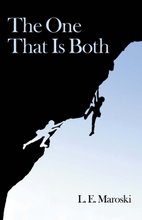I will be presenting a paper this spring at the Conference for Global Transformation, and although it is only tangentially about paradox, a tangent can be a useful place to visit. Here is a little tease, to whet your appetite. A link to the whole paper is at the end.
TRANSFORMING LANGUAGE TO TRANSFORM THE WORLD
Would a transformed world look much like the one we have now? Would we refer to things the same way, use the same words, reason using the same principles developed thousands of years ago by Aristotle? Or would a transformed world look, sound, and feel different? Would we interact with it differently? To the extent that the world our senses perceive will always be “just what’s so,” but the world in which we be is shaped by our language, then perhaps to transform the world concomitantly requires us to transform the language we use to describe and create it. Otherwise, are we simply pouring transformed wine into old conceptual bottles?
To read the whole paper, click here.

1 comment:
Lisa,
Thanks! Your comments are clear and incisive. Polarities are those dilemmas we face in many areas of lives, which if unrecognized and unmanaged as such, produce conflict. It could be conflict at home between parents and their teenagers as well as conflicts between nations.
My interest in polarities has really focused on intra-personal awareness. My theory is that the better we understand ourselves, and how our own motivational values drive us to think and act, the more effectively we can relate to others in our work and home lives. It's because Barry Johnson's Polarity Map(TM) makes the whole picture more accesible and visible.
Before I knew the polarity principles and map, I often came to situations with an "either/or" mindset, strong in my convictions and beliefs. It wasn't until 8 years ago that I learned about "both/and" thinking being a strong match for certain complex situations in life.
For decades, I was a "can do" manager, I valued getting the work done (Task focus), so whenever I came into a new job, productivity would shoot up and my boss would be thrilled...Only to find within several months that employees were now getting burned out and feeling under-appreciated for the hard work. Since hard work (Task) was my sole focus, I continued to emphasize for all to work harder and smarter! Next, employees started complaining that I didn't care about them, there was much talk around the water-cooler. Now productivity dropped due to those chats, long lunches and rising absenteeism.
What I learned was that I had to continue my strong focus on Task AND supplement that motivational value with something very different, yet complementary, Relationship focus. What a blind spot I had for so long! Once I incorporated both into my management approach, productivity was up and so was employee satisfaction.
Polarity Mapping can be done for yourself intra-personally, for teams, for organizations and nation-states.
President-elect Obama has framed all of his plans for hope under the rubric of this polarity.
Indvidual Responsibility AND Mutual Responsiblity
He recognizes that we need to focus on both simultaneously. Without either, we as country, are doomed to try and solve problems only to create new problems. We need a country that can see these very different views as a polarity vs. allowing them to polarize people.
www.mypowersurge.com
Post a Comment